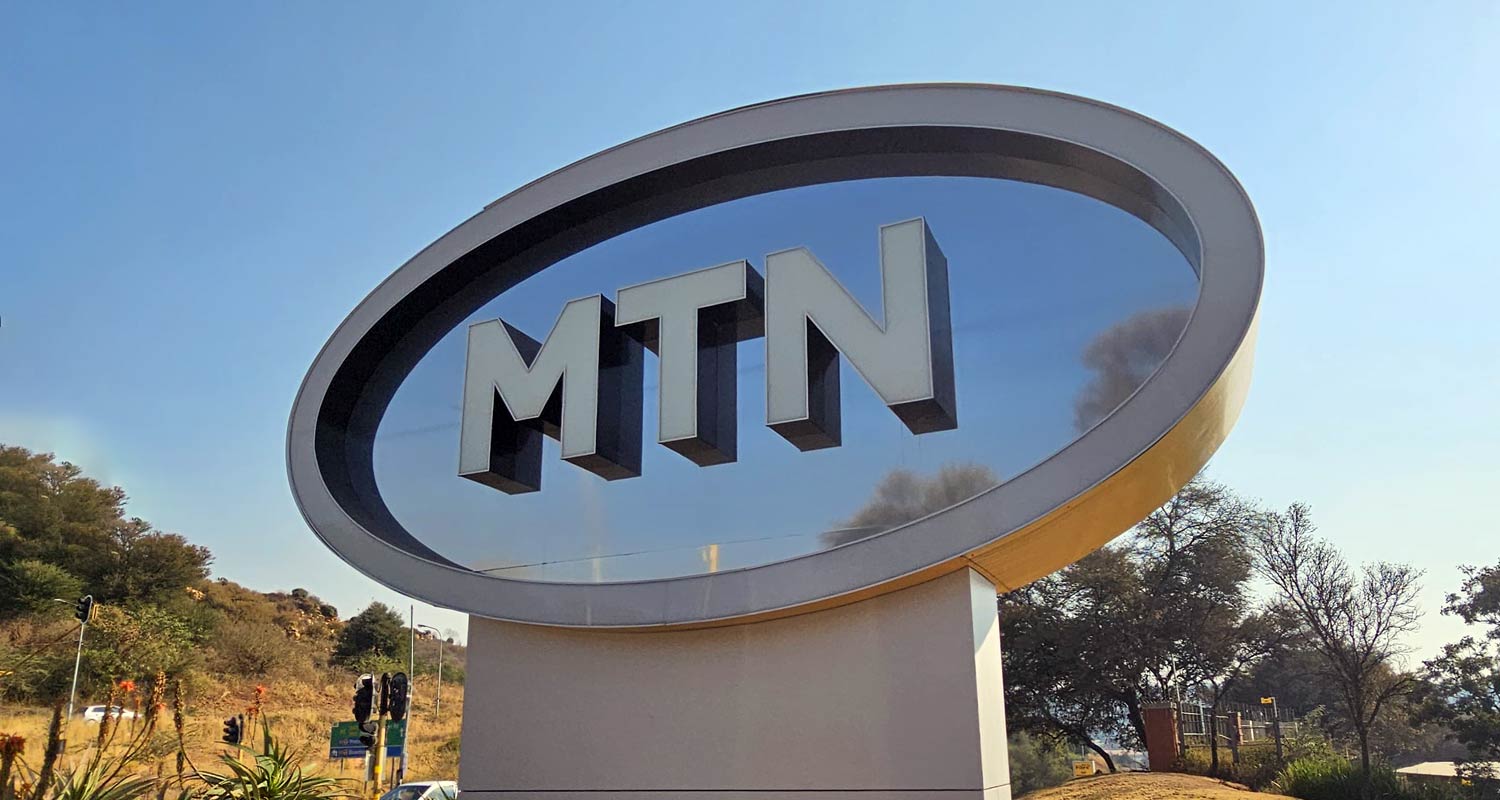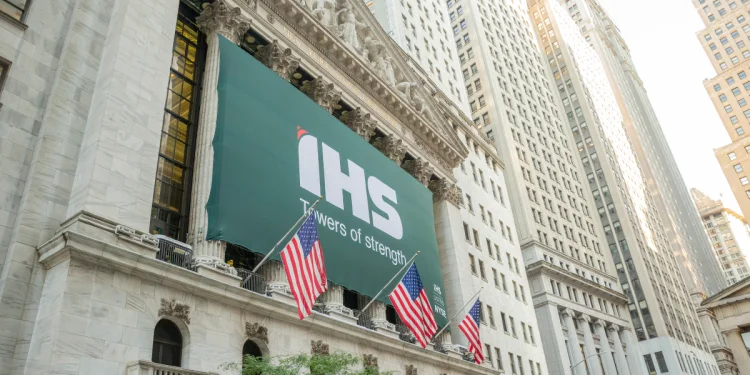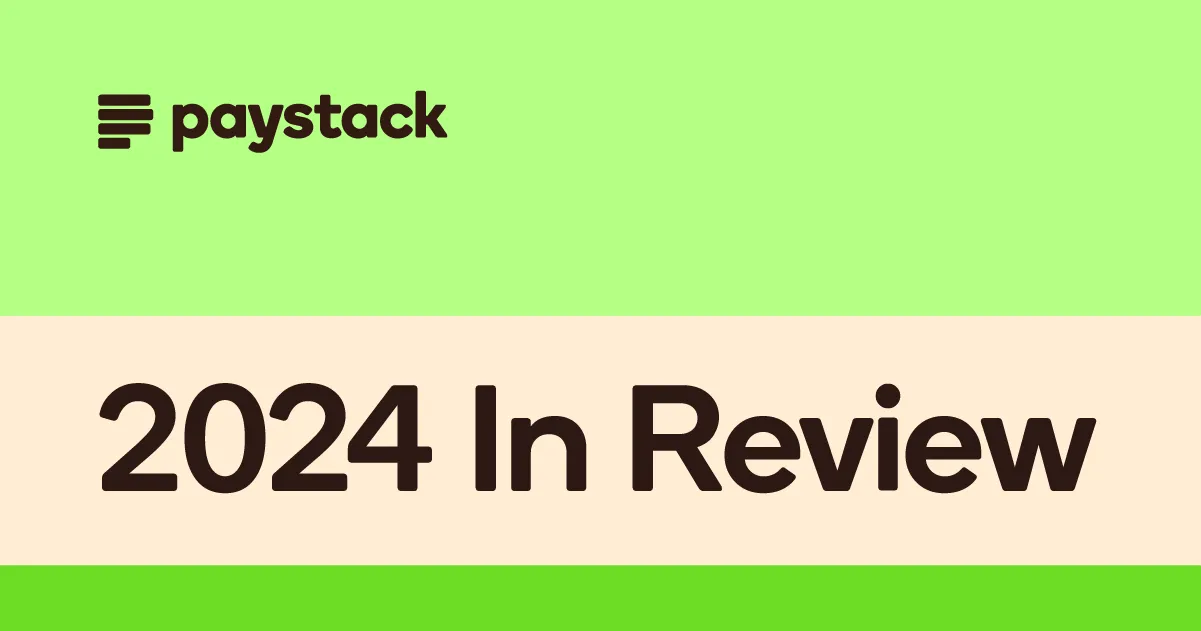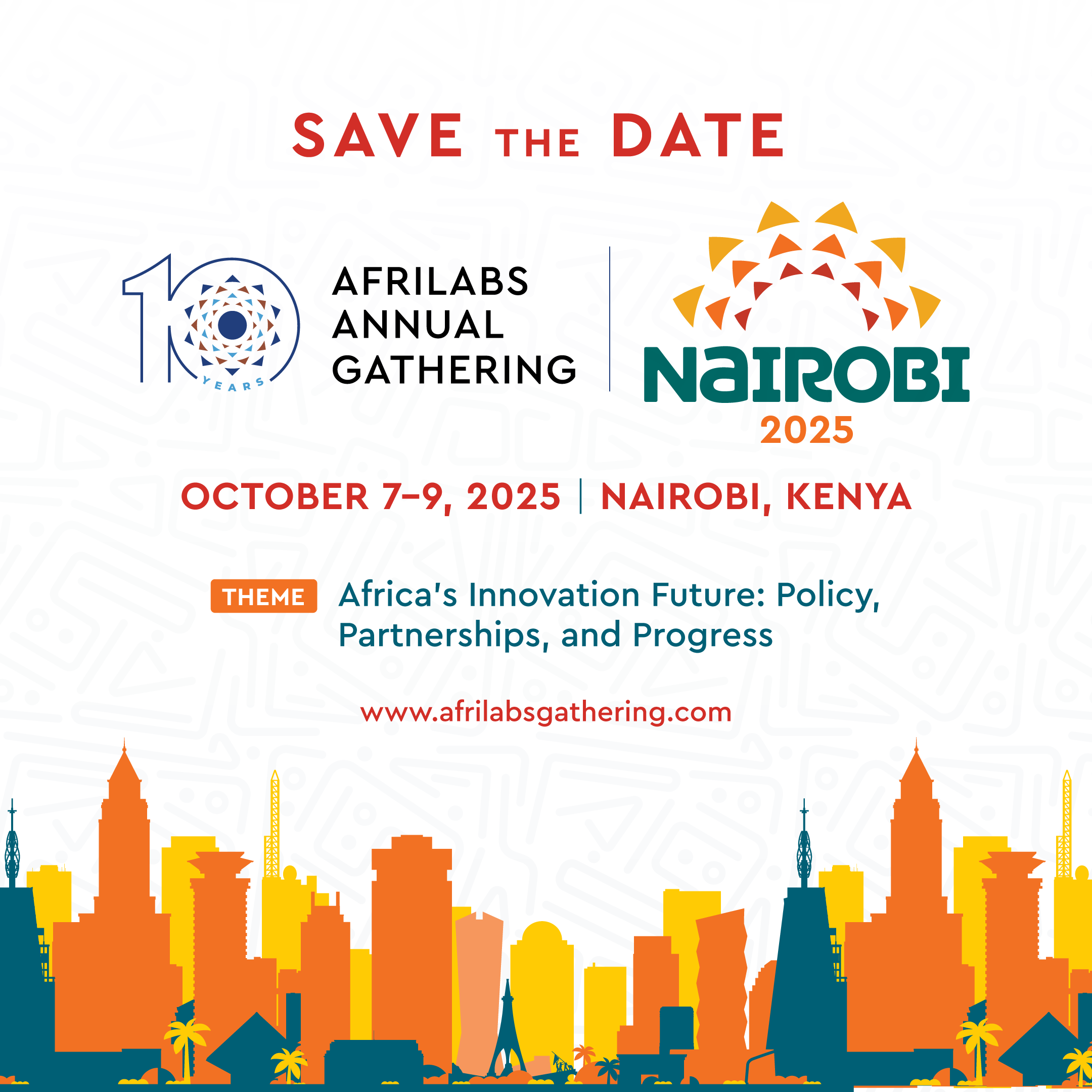- 👨🏿🚀TC Daily
- Posts
- A for Access. B for Bank. C for consequence
A for Access. B for Bank. C for consequence
Inside: IHS shares hit a 20-month high.


Howdy! ☀️️️
How much do you know about technology in Francophone Africa? What are the region’s most important startups or crucial policy developments around tech innovation? We’re excited to partner with Lina Kacyem, Investment Manager, Launch Africa Ventures to introduce a web-only newsletter about tech in Francophone Africa.
Lina has almost twenty years of experience in various sectors of the financial industry and is the co-founder of the angel network, Next Millennia Angels. As an investment manager, Lina leads investments in Francophone Africa and will bring decades of first-hand experience, insider insights and analysis of the region’s technology landscape into curating a newsletter that will help you and our wider audience learn about the tech innovation, policy, culture, and economy as it unfolds in Francophone Africa.
Expect a dispatch every two Tuesdays, beginning later today.

Banking
Access Bank Kenya and ABC could get fined by the CBK over non-compliance on loan rate cuts

Bank ABC and Access Bank Kenya—the subsidiary owned by Nigeria's largest bank by assets—could get fined by the regulator, Central Bank of Kenya (CBK), for refusing to comply with the loan rate cuts.
The two banks top a list of five lenders that raised lending rates in March, despite warnings from the Central Bank of Kenya. Access Bank pushed its average rate to 20.5%, up from 20.39%, while ABC moved from 17.42% to 17.54%. Others—DIB, Kingdom, and Guardian Bank—also nudged their rates higher, putting them in the regulator’s crosshairs.
This showdown has been brewing for months. Since August 2024, the CBK has been cutting its benchmark policy rate to make loans cheaper. But some banks, rather than follow suit, have held firm—or raised rates altogether. Frustrated, the CBK now plans to start fining non-compliant lenders from June: KES 20 million ($155 million) upfront or three times the gain, plus daily penalties. Bank executives, too, could be personally fined.
So why the standoff?Banks argue that the CBK’s new pricing formula—pegging rates to its benchmark rate plus a lending margin—is too rigid. They prefer using the interbank rate, which they say reflects market realities better.
Yet, Kenya is not an isolated case, even in Africa. In 2018, the Bank of Ghana (BoG) and commercial banks in the country went through the same dance. The BoG had cut its key rate by 550 basis points to 20% for nearly two years, but banks didn’t pass on the lower rates to borrowers—largely due to a high volume of bad loans. Elsewhere, in South Africa and Morocco, regulators have also struggled with banks to rein in lending rates, as lenders remain wary of credit risk.
What the CBK has going for it is the Supreme Court’s June 2024 ruling, which stated that banks must seek approval from the Cabinet Secretary before raising interest rates on loans. This decision cleared the path for the CBK’s push to enforce compliance with rate cuts.
And it seems determined to win this one. Whether through fines, pressure, or more inspections, it wants rates to come down—and fast. Because if credit doesn’t flow, the economy won’t either.
In this tug-of-war, it’s borrowers who are still paying the price.
Seamless Global Payments With Fincra.

Issue accounts in NGN, KES, EUR, USD & more with one integration. Send & receive funds seamlessly across borders; no more banking hassles or complex conversions. Create an account for free & go global today.
Companies
MTN Group grew its revenue by 10.4% in Q1 2025 as fintech drives growth for the company

On May 12, MTN Group, Africa’s largest homegrown telecom operator, reported a 10.4% year-on-year (YoY) increase in Q1 2025 revenue—from R42.90 billion ($2.34 billion) to R47.37 billion ($2.6 billion)—accounting for the currency devaluations across several of its markets.
Nigeria reclaimed its title as MTN’s top-earning country—after Q4 2024’s slump. The country generated R13 billion ($710 million) in revenue, slightly ahead of South Africa’s R10.7 billion ($584 million).
Regionally, the group’s’s West and Central Africa (WECA) operations led the charge, raking in a combined R15 billion ($819 million) to become MTN’s most profitable region this quarter.
Data revenue increased by 17.9% as the demand for data reached 5,677 petabytes in the quarter. However, voice, which has historically been a top money-spinner for MTN, surprisingly fell, declining by 0.1%.
Fintech was the standout performer. MTN’s mobile money platform (MoMo) handled $95.3 billion in transaction value—up 48.9% from $72.7 billion. The number of transactions also rose from 4.8 billion to 5.5 billion, with an average transaction size of $17.3. Put plainly: users transacted more often, and with fatter wallets.
This high-octane activity helped fintech revenue climb from R4.9 billion ($268 million) to R6.2 billion ($339 million)—a 25.2% increase in constant currency terms.
Uganda remained the fintech crown jewel, driving the lion’s share of growth. Meanwhile, Nigeria’s MoMo user numbers continued to decline, likely affected by delayed regulatory approvals and licence bottlenecks.
MTN’s Q1 shows a company leaning heavily—and smartly—into digital services, driven by the increasing appetite for data services among subscribers. High data purchases lead to more smartphone use; more smartphone use exposes users to fintech adoption, which MTN plays in. The telecom operator benefits on both ends. It already has partnerships with satellite companies Lynk Global, Starlink, Eutelsat OneWeb, and AST & Science in different markets as it plans to strengthen its broadband reach.
MTN’s digital bets are what’s keeping the engine humming—and shareholders smiling. Or at least, not frowning.
Power Your Business With Paga Engine

Join businesses already building smarter with Paga Engine. Get started today.
Telecoms
IHS shares hit 20-month high as Nigerian telcos bounce back

What is good for the goose is good for the gander.
As Nigeria’s telecom operators—MTN and Airtel—bounce back from a bruising year, IHS Towers is reaping the rewards. Last week, IHS shares soared nearly 10% in a single day, hitting $5.70, their highest level since September 2023, with trading volumes not seen in almost two years. Year-to-date, the stock is up a remarkable 51%, outpacing both the S&P 500 and the broader tech sector.
This isn’t just a lucky break. IHS’s fate is tightly linked to its anchor tenants: MTN and Airtel alone drive 57% of its revenue, and Nigeria remains its biggest market.
As both telcos return to profitability, IHS has secured long-term contracts that now cover 72% of its revenue, renegotiated lease terms to cushion against naira swings and energy price shocks, and delivered an earnings beat that caught Wall Street’s eye. Add in a $7.75 million insider buy from CEO Sam Darwish, and you have a cocktail of confidence that’s hard for investors to ignore.
Q4 2024 also gave them something to cheer about: $437.8 million in revenue, $0.73 per share in earnings, and a 51% year-to-date stock jump. With plans to plant 500 more towers in 2025—many in rural zones—IHS is staying busy
The bottom line: As telecom companies thrive, so does IHS, reminding us that in Africa’s digital revolution, the infrastructure enablers are the real power players.
Here’s what happened at Paystack in 2024!

See what Paystack built last year! From major product upgrades to new ways we supported African businesses. Check out our Year in Review →
Funding
Egypt’s Nawy bags $75 million to take over MENA’s real estate game

Egypt’s Nawy has raised $75 million in a Series A funding round, combining $52 million in equity and $23 million in debt financing from leading Egyptian banks. The round was led by Partech Africa, with participation from e& Capital, Nclude Fund, and other regional and global investors. This is one of the largest funding rounds ever for an African proptech company.
Nawy, founded in 2019, is a digital real estate platform that helps users search, buy, sell, and finance properties in Egypt. The company offers a range of services, including property listings, in-house brokerage, mortgage solutions, and even fractional ownership options. Its AI-powered platform aims to make property transactions faster, more transparent, and accessible to a wider audience.
With this new funding, Nawy plans to enhance its technology and expand beyond Egypt into new markets across the Middle East and North Africa (MENA) region, including Morocco, Saudi Arabia, and the UAE. The MENA region is experiencing rapid urbanisation and growing demand for real estate, especially among its young and tech-savvy population.
Nawy will compete with established players like Morocco’s Mubawab, Huspy, and Property Finder, all of whom have strong footholds in the region’s real estate sector. The size of this funding round-far surpassing previous African proptech deals-signals growing investor confidence in the sector and in Nawy’s ability to scale.
Post Jobs on Jobberman for Free!

Hiring just got easier! Post your jobs on Jobberman for FREE and connect with 3 million+ qualified candidates. No fees, no stress - just smart, seamless recruitment. Start here.
CRYPTO TRACKER
The World Wide Web3
Source:

Coin Name | Current Value | Day | Month |
|---|---|---|---|
| $102,657 | - 1.27% | + 21.20% | |
| $2,452 | - 2.41% | + 51.78% | |
| $0.00699 | + 64.88% | + 189.88% | |
| $169.39 | - 3.54% | + 29.01% |
* Data as of 06.00 AM WAT, May 13, 2025.
Moonshot Is Back, Bigger, And Bolder!

Africa’s flagship tech event is back, this time with more depth, new formats, and a sharper focus on execution. With the theme Building Momentum, Moonshot 2025 is where real conversations meet real opportunities. If you’re building products, writing policy, or funding innovation, this is where your next move starts. Watch the 2024 highlights here.
Early bird discount now available. Reserve Your Spot.
Opportunities
- Village Capital is offering early-stage startups in Africa the chance to join its Greentech Africa 2025 accelerator. The programme supports climate tech ventures building solutions in energy access, sustainable agriculture, circular economy, and related sectors. Selected startups will receive mentorship, investor connections, and capacity-building support. The programme is open to founders based in Africa with market-validated solutions tackling climate challenges. Apply here.
- AfriLabs Annual Gathering 2025 lands in Nairobi, October 7–9, spotlighting Africa’s innovation future through policy, partnerships, and progress. Be part of the discussion here.


Written by: Emmanuel Nwosu and Opeyemi Kareem
Edited by: Faith Omoniyi
Want more of TechCabal?
Sign up for our insightful newsletters on the business and economy of tech in Africa.
- The Next Wave: futuristic analysis of the business of tech in Africa.
- TC Scoops: breaking news from TechCabal
P:S If you’re often missing TC Daily in your inbox, check your Promotions folder and move any edition of TC Daily from “Promotions” to your “Main” or “Primary” folder and TC Daily will always come to you.

How did you find today's edition of #TCDaily? |


